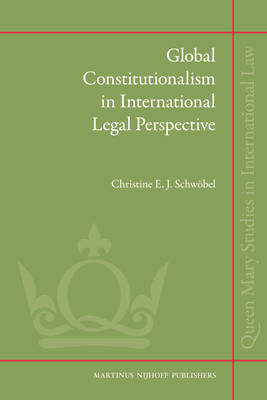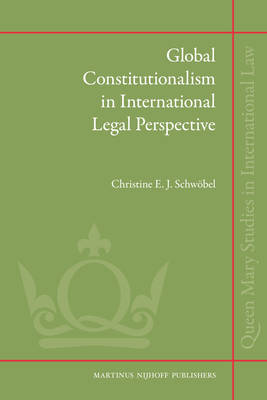
- Afhalen na 1 uur in een winkel met voorraad
- Gratis thuislevering in België vanaf € 30
- Ruim aanbod met 7 miljoen producten
- Afhalen na 1 uur in een winkel met voorraad
- Gratis thuislevering in België vanaf € 30
- Ruim aanbod met 7 miljoen producten
Zoeken
Global Constitutionalism in International Legal Perspective
Christine Ej Schwöbel
€ 228,95
+ 457 punten
Omschrijving
The question of whether a global constitution exists or is emerging, and if so, what form it takes, is one of the most intriguing and controversial topics of recent international theory. This book examines public international law contributions to the debate, specifically taking a step back to enquire about the underlying assumptions that inform this debate. While contemporary contributors declare the idea of global constitutionalism to be global, this book reveals and interrogates the underlying liberal democratic themes that define prevailing approaches, thus calling universality into question. Drawing on critical theories within and without the international legal discipline, this book suggests a reconceptualisation of global constitutionalism in terms of what is named 'organic global constitutionalism'. The book thus addresses significant shortcomings and illuminates necessary reorientations to a field that is currently still in the crucial phase of formation.
Specificaties
Betrokkenen
- Auteur(s):
- Uitgeverij:
Inhoud
- Aantal bladzijden:
- 220
- Taal:
- Engels
- Reeks:
- Reeksnummer:
- nr. 4
Eigenschappen
- Productcode (EAN):
- 9789004191150
- Verschijningsdatum:
- 21/03/2011
- Uitvoering:
- Hardcover
- Formaat:
- Genaaid
- Afmetingen:
- 165 mm x 246 mm
- Gewicht:
- 657 g

Alleen bij Standaard Boekhandel
+ 457 punten op je klantenkaart van Standaard Boekhandel
Beoordelingen
We publiceren alleen reviews die voldoen aan de voorwaarden voor reviews. Bekijk onze voorwaarden voor reviews.








